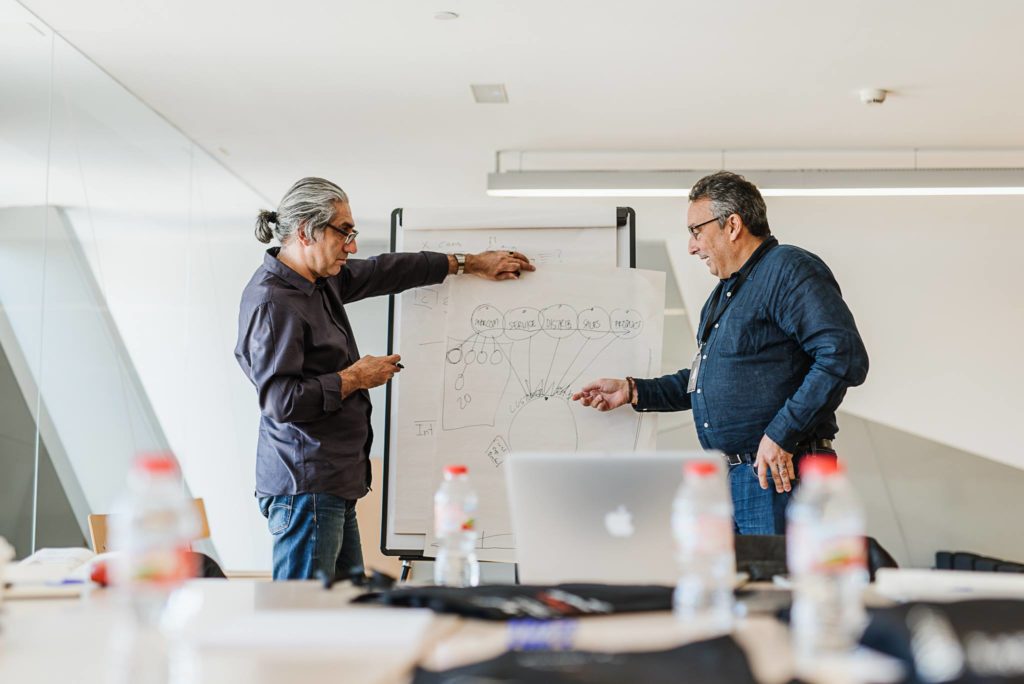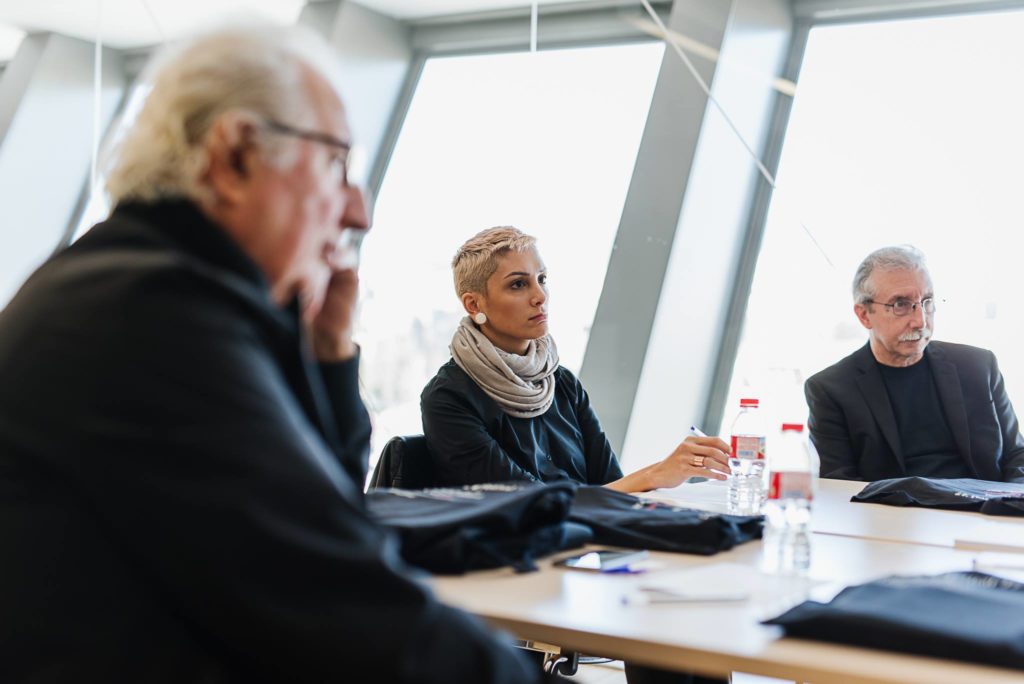Blog Post
Creative Incubator kick-start
The 4th European Creativity Festival, organized by the Art Directors Club of Europe, had one of those catalyst moments for many of the attendees. ADCE had once more managed to gather some of the most inspiring creatives from around the globe. Getting an update on some of the best Campaigns created out there and meeting experienced professionals was uniquely enriching.

As one can imagine, everything presented on stage was certainly the result of years of experience and the courage of innovating and questioning the status quo of the creative industry, towards a better understanding of the challenges our clients and consumers face today and tomorrow.
A day before the festival started, Pi School’s CEO and Co-Founder Jamshid Alamuti moderated a workshop with some very unique creative minds, bringing the required diversity to debate some fundamental and most sensitive questions about the tomorrow of the industry itself. The idea was to launch something highly relevant to everyone in the creative industry. The next Agency model. And so the Creative Incubator Programme was given the kick-start.
“Innovation is only possible when you have the right questions” Johannes Newrkla
Understanding what’s missing
In the constantly changing world, the traditional model creative agencies were based upon is no longer providing the answers to the influences created by an advanced technology, clients’ needs for consultative creative solutions, and the collaboration needed to design products and services. You need to be much more than “just” an Advertising Agency.
Working towards spotting of the main focus areas for the Creative Incubator program, Ami Hasan (President of ADCE and Chairman of Hasan & Partners) as one of the key workshop members, challenged the idea of “Customer Experience” vs. “Consumer Experience”. A concept which would completely shift the roles within the business, transforming traditional ways of working and of understanding the relationship between the clients and their agencies.
Johannes Newrkla (CEO at Merlicek & Grossebner and Founding member of ADC-Europe), another valuable member of this kick-off meeting, rose the issue of diversity inside the agencies, and we are not limiting the word diversity to the gender aspect of it. Diverse in terms of generation, diverse in core fields of expertise, diverse in every aspect as an elementary concept of looking at the world around us as well as at the needs of our clients. “It’s not a question of giving the right answers but it’s all about putting the right questions”, he said. “So what lessons can we learn from diversity? How can we aim for the best solution in a multiverse collection of possible approaches?

The obvious: the change of the business model.
Zélia Sakhi (Head of Design and Creative Director at Mobiento/Deloitte Digital) highlighted the importance of the converge of industries and the converge of skills. She approached the importance of creating solutions by integrating the so-called “non-creatives” from outside of our core industries.
“Agencies should understand their role as consultants. It’s all about trust. Clients buy credibility” said Zélia Sakhi.
“We need to be brave and take the first step in partnering with organizations from other industry sectors”, said Johannes Newrkla.
Technology was confirmed to be another key factor shaping how we would work and relate to each other. “In the very next future technology will allow every agency to access an enormous amount of data. And new roles will rise within the agencies” said Ami Hasan. “But the solution to problems will always need amazing ideas.”
“Everything in this world can be solved by creativity” Ami Hasan
Building the future.
Jamshid Alamuti added the ingredient of emotions such as fear, that is very common when it comes to the unknown. With elements such as integration and introduction of new technology, the addition of consulting as a fundamentally needed skill into creative solutions, and as the step towards not only communicating about a product or service but co-design and producing it, understanding the fear and other emotional triggers would remain a high priority. After all, we remain human and are in the business of working with people’s emotions.
“The image of advertising is not sexy anymore. No young person finds it amazing” said Till Diestel (Managing Creative Director at BBDO Berlin) “now it is tech that has become cool itself”. From his perspective, the European advertising industry is not producing at its best and that’s one of the reasons why “we should have creatives from all over the world in our agencies”. Till Diestel talks about three ingredients to be trusted: empathy, measurability and mutual comprehension.
With this Kick off day, the first milestone of the Creative Incubator programme was achieved. Key Focus Areas were identified, and tasks and key questions were generated. This is where the participants of the Creative Incubator programme would join us for the next milestones, to come up with some most significant and suitable models and concepts to shape the future of the advertising agencies.